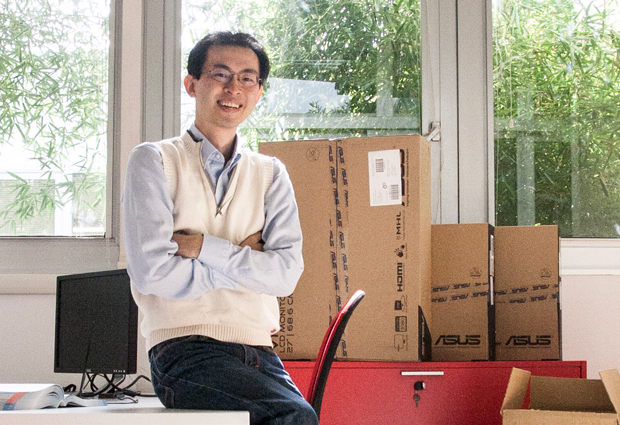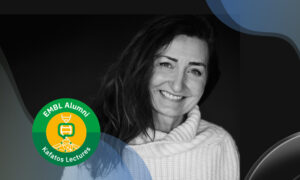
Welcome: Hiroki Asari
New group leader Hiroki Asari seeks to unpick connections between sight and mind, answering questions such as why a cookie looks different depending on how hungry you are

The Asari group will be studying how the visual system is influenced by state of body and mind. They will present the same set of visual stimuli to mice in different situations. By combining such experiments with computer modelling, they aim to reconstruct the circuitry of neurons in the eye and the brain, and the connections between them.
Our visual system works way better than the state-of-the-art computer systems – it’s just amazing!
What got you interested in science?
I was originally interested more in physics, maths, computer science. But I became intrigued by the complexity of the brain; how this single kilogram of tissue can do such complicated things. Our visual system works way better than the state-of-the-art computer systems – it’s just amazing!
Nowadays, I really like the moment when you get the data – the recordings from the brain. At that moment, you’re the only person in the world who knows this phenomenon, and that’s a great feeling.
Name one tool you can’t do without
I’d say a computer, because we need computers to collect data, and also to analyse it, because we get a huge amount of data and to make sense of it we need to rely on high computing powers.
Whose work at EMBL intrigues you? Do you already have potential collaborators in mind?
I don’t have any specific collaborations set up yet, but I would love to interact with many people, because I think that’s one of the strengths of EMBL. So for example the newly recruited group leader Robert Prevedel – he’s an expert in optics and developing advanced imaging techniques, so I’d love to work with him because I’m also interested in doing optical imaging of brain activity.
What is your philosophy for running your lab?
I would love to give my students and postdocs a big picture of the research. I don’t want to micromanage what they do. Of course everyday there are things you have to do, but to keep your motivation in science I think it’s really important to have this big picture.
What will you be looking for as you build your group?
Diversity is important, both in terms of nationalities and also in terms of background. Modern neuroscience really requires combining many different tools from different fields, ranging from molecular biology and genetics to physics, maths, computer science… so I’d love to have people with different backgrounds and expertise and try to have this synergistic, active environment to do fun science.
I like open-minded people, and happy, optimistic people, because sometimes science doesn’t go as you expect, so you have to be a bit patient, and you have to be optimistic to get nice data and do good science.
If there was a motto hanging at your lab’s door, what would it be?
Science is fun! I think it’s really important to enjoy doing science, and enjoy what you’re doing… to satisfy your curiosity about the world with the science.
What’s the best advice you’ve received in your career?
I got lots of good advice from many people in my career, including my PhD advisor and my postdoc advisor, so it’s tough to choose one. But I guess one of the best was that it’s always nice to go back to the raw data. We do lots of data mining, because we collect tonnes of data, and so to make sense of it you have to work on it. But the raw data actually really reflects what the brain is doing, so from time to time I try to print out everything and just spread it out on the desk – or even the floor – to get these insights into what the brain is doing. You know, human vision is really, really good at extracting patterns or meaning from the visual scene, so it actually helps. Don’t rely just on computers, but use your instinct… use your brain to understand the brain!
What impact would you like your research to have?
That’s actually a difficult question because I’m so excited about just being here and starting my own lab!
But one of my hopes is that my studies will lead to the future development of visual prostheses, for example. There are many people who suffer from retinal degeneration. In some of those cases, only the neurons that receive light are affected, but the rest of the brain is working just fine. So if you can develop a device – a tiny chip – that can emulate the function of the retina, then maybe that could help to cure these people.


